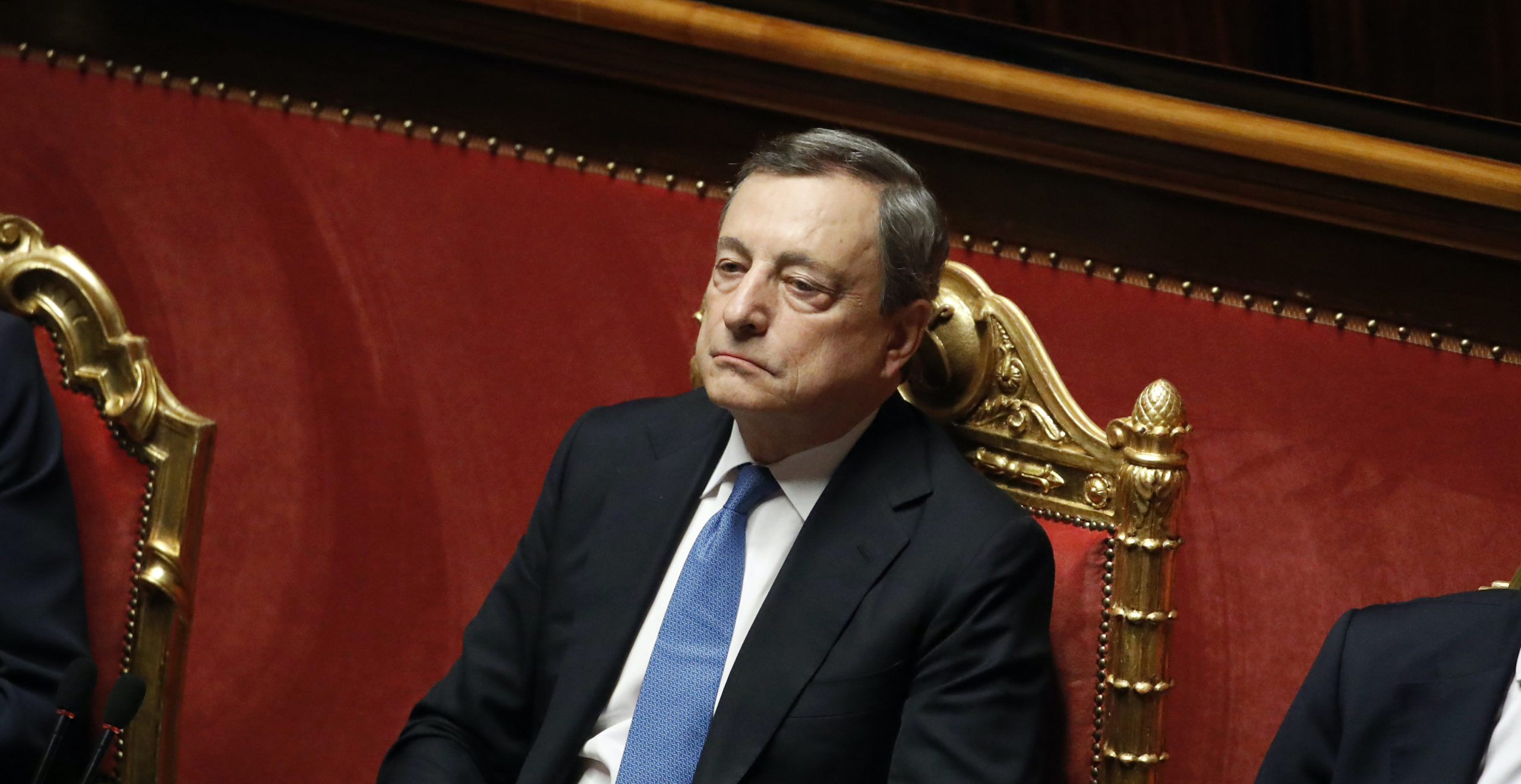Italy was plunged into fresh political turmoil this week as prime minister Mario Draghi announced his resignation after the Five Star Movement (M5S) — the second-largest member of his “national unity” coalition — boycotted a parliamentary vote of confidence.
Officially, the party, led by former prime minister Giuseppe Conte, walked out because the bill included plans to build a waste incinerator to address Rome’s garbage crisis, which the M5S has always opposed for environmental concerns; it also accused the government of not doing enough to combat poverty.
Despite comfortably winning the vote in the Senate, Draghi reacted by immediately announcing his resignation, saying that the “national unity coalition that has supported this government since its creation no longer exists” and lamenting that “the pact of trust” between allies had been broken.
However, in a bid to avoid snap elections, president Sergio Mattarella — the real powerbroker of Italian post-democracy — has rejected Draghi’s resignation, insisting he address parliament next Wednesday (July 20) for “an assessment of the situation”. Until then, the government will be hanging in a limbo. After that, several scenarios are possible.
One option is that Draghi stays where he is — either because he manages to convince the M5S to come back into the fold (Conte made it clear that the party was voting against the bill, not the government) or because Mattarella convinces him to continue serving as prime minister even without the Five Star Movement’s support. After all, even without the latter, Draghi would still be able to count on a huge majority.
If, on the other hand, Draghi confirms his resignation, the ball would pass to Mattarella, who would be faced with the choice of either trying to find a replacement prime minister until the end of the parliamentary term in May 2023, or calling for early elections later this year — the latter being the preferred option by Right-wingers Giorgia Meloni and Matteo Salvini.
A casual onlooker may feel like this is another example of the vibrancy and volatility of Italy’s political system. But it is fact another dagger in the heart of Italian democracy. One the one hand, we have the pitiful attempt of Giuseppe Conte’s Five Star Movement, which broke with the ultra-Euro-Atlanticist wing of the party led by Luigi Di Maio, to rekindle its radical credentials. This has come after the party offered its unwavering support for a year and half to a government led by none other than the the movement’s former arch-enemy, über-technocrat and former central banker Mario Draghi — literally the bodily incarnation of the neoliberal political-economic model which the party once claimed to oppose.
This is of course a desperate attempt to halt the party’s free-fall in the polls — millions of voters have understandably turned their back on the party, disgusted at the former populist party’s pro-establishment turn — in view of the upcoming elections.
On the other hand we have Mario Draghi, who is so ill at ease with the dynamics of parliamentary democracy that he considers an affront the idea of governing only with the support of 70% of parliament. More probably, Conte simply offered Draghi the excuse to do what he had in mind of doing for some time — abandon a sinking country before the social and economic powder keg that he helped create explodes.
Indeed, it’s difficult to grasp the extent to which Draghi has managed to worsen a situation that was already far from brilliant. Mass unemployment, falling wages, record-level poverty, hundreds of thousands of bankrupt SMEs, skyrocketing inflation, rising interest rates on a ballooning public debt — this is the legacy of Mario Draghi. Not only did ‘Super Mario’ impose the harshest and most discriminatory pandemic restrictions in the West, at the same time he invited US corporations such as Uber into the country and dragged the nation into a war that is causing much greater damage to the Italian economy than to Russia. It’s probably no surprise that a recent poll showed that 50% of Italians aren’t happy with the government’s work.
The situation has really reached boiling point — and Draghi wants to jump ship. Then again, this is what happens when you give a central banker accountable only to the EU and to NATO free rein of a country.
Additional reporting by Paolo Cornetti











Join the discussion
Join like minded readers that support our journalism by becoming a paid subscriber
To join the discussion in the comments, become a paid subscriber.
Join like minded readers that support our journalism, read unlimited articles and enjoy other subscriber-only benefits.
Subscribe